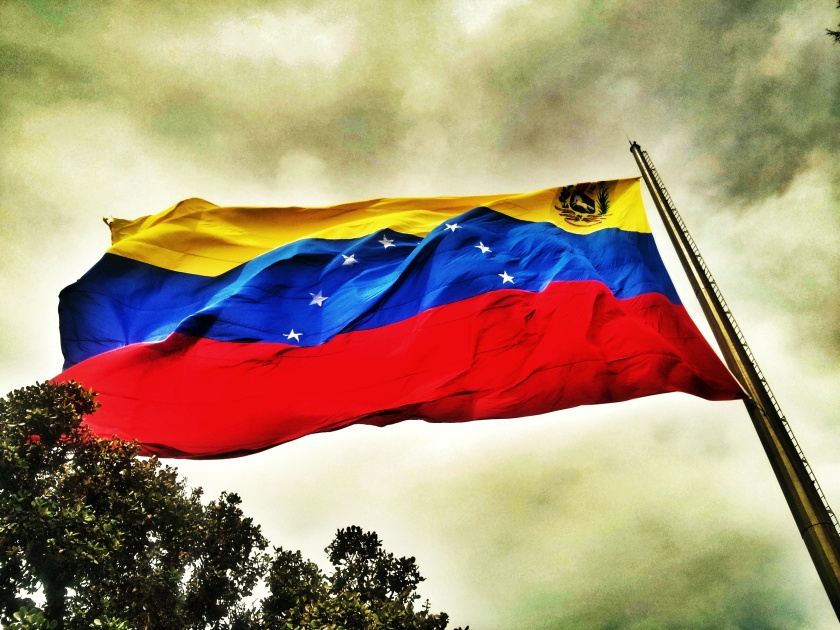It is difficult to find good analysis that does not follow the libertarian line that Venezuela’s difficulties are all because of “socialism”
Washington’s Intent is Economic Destabilization and “Regime Change” In Venezuela
by
Stephen Lendman
31
October, 2016

Venezuela’s oil-dependent economy suffers greatly from low crude oil prices and US economic warfare – waged to destabilize the country, create enormous hardships, mobilize majority opposition to President Nicolas Maduro’s leadership, and end nearly 18 years of economic and social progress. The collapse in the price of crude oil was the result of a carefully designed speculative operation.
Neocons in Washington want control over Venezuela’s vast oil reserves, among the world’s largest. With full US support and encouragement, the right wing opposition which controls the National Assembly want Maduros ousted – its latest tactic by recall referendum as constitutionally permitted.
On
October 18, Venezuela’s Supreme Court ruled valid signatures of 20%
of voters in each of the nation’s 24 states must be collected to
proceed with a process against Maduro.
“(F)ailure…will
render the call for the presidential recall referendum as nullified,”
the High Court said in its ruling.
On
October 21, Venezuela’s National Electoral Council (CNE) suspended
the referendum until further notice, following Supreme Court
allegations of fraud. Over 30% of signatures collected had
irregularities – including listing over 10,000 deceased persons.
A
previous article explained how Venezuela’s recall referendum works.
Article 72 of Venezuela’s Constitution states “(a)ll magistrates
and other offices (including the president) filled by popular vote
are subject to revocation.”
Once half (their) term of office…has elapsed, 20% of (registered) voters (by petition may call for) a referendum to revoke such official’s mandate.
When a number of voters equal to or greater than the number of those who elected the official vote in favor of revocation (provided the total is 20% or more of registered voters), the official’s mandate shall be deemed revoked…”
Signatures
collected must be verified for authenticity before proceeding further
with the recall process. If achieved, it’ll be organized within 90
days. Removing Maduro requires support from more than the 50.6% of
voters supporting his 2013 election.
Timing
is important. If held by January 10, 2017, a new election will be
called if Maduro loses. If things go against him after this date,
Vice President Aristobulo Isturiz will serve as president until
January 2019, when his term expires.
In
response to CNE’s suspending the recall process, the factions
controlling the National Assembly barely stopped short of urging coup
d’etat action to remove Maduro forcefully.
Last
Sunday, they said they’ll impeach him for “violating democracy.”
The body has no legal standing after ignoring the Supreme Court’s
October 18 ruling.
United
Socialist Party of Venezuela (PSUV) leader Hector Rodriguez mocked
them, saying parties violating the “rules of the game come and talk
about democracy…There will be no recall referendum in 2016 because
of fraudulent signatures collected.”
Violent
demonstrations may follow, similar to what occurred in 2014 –
perhaps another US coup attempt.
On
October 24, WaPo
editors disgracefully
headlined “How to derail Venezuela’s new dictatorship.” What
followed was a disgraceful litany of misinformation, exaggeration and
Big Lies.
WaPo: Maduro
“made clear (he and his government are) prepared to shred what
remained of the country’s constitutional order…(They) stripped
the opposition-controlled national assembly of its powers, imprisoned
several top leaders and tried to slow” the recall process.
Fact: Maduro
and Venezuela’s CNE observe the letter of constitutional law. No
opposition powers were “stripped.” Their imprisoned officials
plotted to remove Maduro by coup d’etat.
Collecting
fraudulent signatures “slow(ed)” the recall process, not
administration officials.
WaPo: Opposition
National Assembly members “issued a declaration saying Mr. Maduro
had staged a coup. That is accurate – and it ought to provoke a
consequential reaction from the United States and Venezuela’s Latin
American neighbors.”
Fact: No
Maduro “coup” occurred, nor is one in prospect. WaPo calling for
“consequential” action sounds ominously like urging Washington to
oust him forcefully.
WaPo: “The
recall referendum the opposition was pursuing offered a democratic
way out of what has become one of the worst political and
humanitarian crises in Latin America’s modern history.”
Fact: US
dirty tricks and economic manipulation leading to disruptions in the
distribution of food, bear much responsibility for hard times in
Venezuela. Real problems exist. Hunger isn’t one of them. WaPo lied
claiming “(t)he vast majority of low-income families say they are
having trouble obtaining food.”
Venezuelans
changed their dietary practices because of the scarcity of commonly
eaten foods, at times consuming less than earlier. Profiteers
hoarding and diverting foodstuffs for resale are responsible, along
with high inflation resulting economic manipulation.
WaPo: “(T)he
United States should be coordinating tough international action.”
Fact: Neocon
WaPo editors want Maduro toppled and replaced. Do they mean by coup
d’etat by calling for “tough international action?”



No comments:
Post a Comment
Note: only a member of this blog may post a comment.